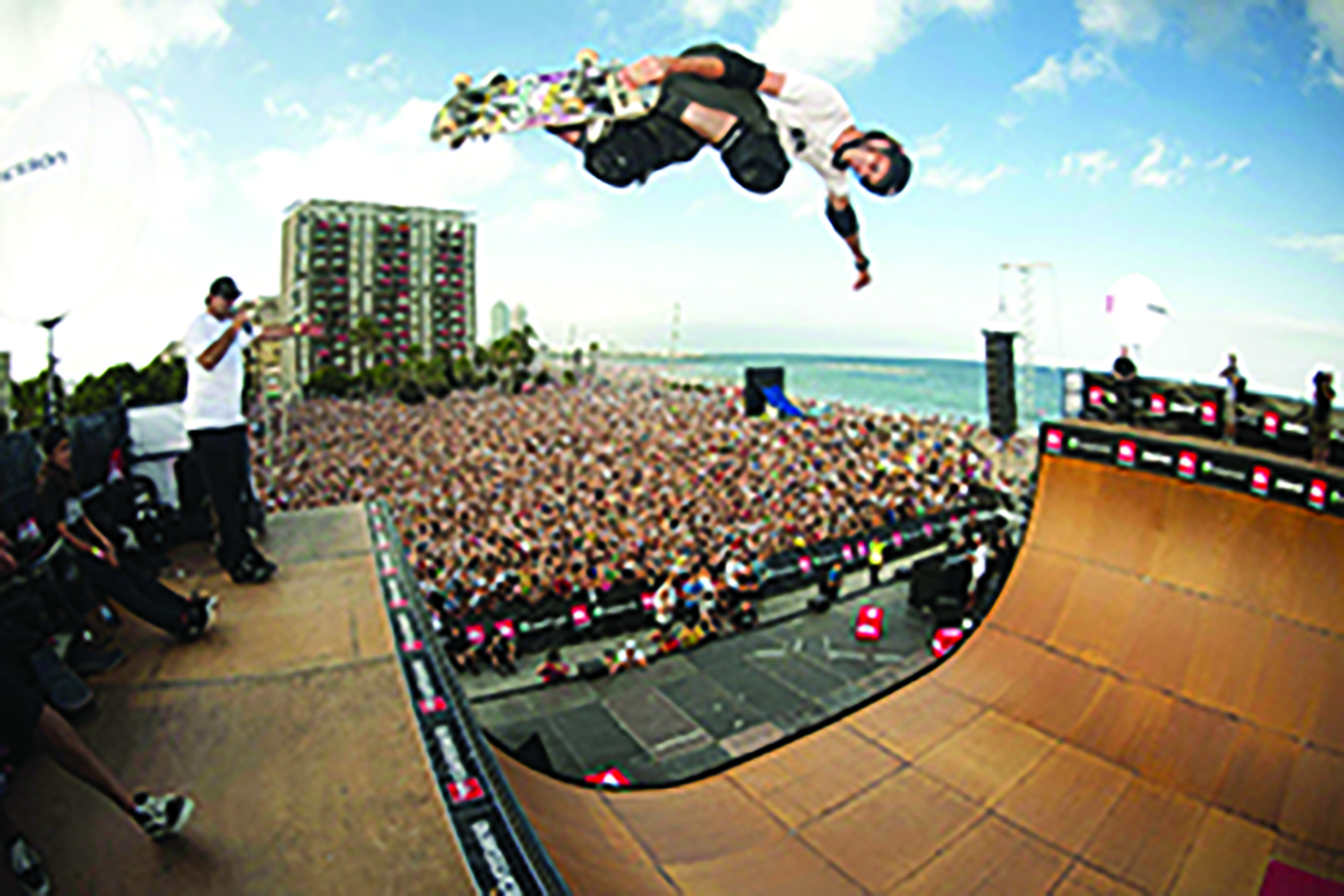by Mike Hudson
HOLLYWOOD — It’s a nice little angle. And one that’s pulled in the rubes from hundreds of small towns all across America. Most recently it snagged Niagara Falls Mayor Paul Dyster and his Director of Community Development Seth Piccirillo.
Tony “The Birdman” Hawk made his bones as a professional skater during the 1980s and 1990s before getting into the video game business in 1999 and soon branched out into other lines of merchandise. He made millions, and set up a not-for-profit known as the Tony Hawk Foundation, an organization described as “philanthropic” by most sources. Its stated aim is awarding grants to build skate parks in economically challenged areas for use by underprivileged youth.
In Niagara Falls, it worked like this:
The foundation awarded the city with a $10,000 grant. The city then turned around and awarded a $9,000 contract to Spohn Ranch, a for-profit company owned by Aaron Spohn, a crony of Hawk’s, who city hall sources say will also get the contract to actually build the park.
The city apparently got to keep $1,000 as a sort of handling fee.
Spohn Ranch stands to make more than $100,000 on the Niagara Falls deal. But that’s just the tip of the iceberg. In a talk he gave last year, Spohn outlined the reasoning behind building skate parks in every hick town from Florida to Washington State. And the subject of underprivileged kids never crossed his lips.
“Once the park is open, we encourage brands and retailers to use our parks as event space to promote their businesses as well as the skateboarding industry as a whole,” Spohn said.
Promotion in the social media is essential for proper marketing, Spohn added.
“When the world’s best professional skateboarders film a YouTube video montage at one of our parks, we now have a great tool for educating municipalities on how skateparks are meant to function,” he said.
And then the money just rolls right in.
“With brands and retailers using our parks as contest space or stops on cross-country tours, we can also entice cities by showing them that high-quality skate parks can have a positive economic impact in the community,” Spohn said.
And Spohn, of course, has access to perhaps the biggest name in all of skateboarding, Tony Hawk.
There are Tony Hawk skateboards and Tony Hawk Playstation games, Tony Hawk clothing, bicycles, amusement park rides and movies. And then there are the tours, events in which Tony Hawk himself — along with an assembled group of select acolytes that ride like the Magnificent Seven (or nine or however many there are) into your Spohn Ranch skatepark-equipped town, um, hawk their wares.
The stuff ain’t cheap. One of the Tony Hawk Playstation games can set you back $50; a hoodie from his clothing line goes for $35; and even a humble plastic water bottle costs $12.95. A signed Tony Hawk skateboard deck goes for $450.
Sixty bucks will buy you a miniature digital video camera you can wear on your helmet as you skate and, for just a bit more, you can get bedroom window curtains with Tony Hawk’s name emblazoned on them or a cool back-to-school notebook with cover art done by none other than Tony Hawk.
Hawk sells undershorts and smartphone cases, computer accessories and circuit boards, polo shirts and t-shirts and bumper stickers and helmets and backpacks and license plate frames.
The bulk of this money gets shipped back to Southern California, where Hawk and Spohn are based and pay their taxes. Multimillionaires and even billionaires aren’t the rare birds in L.A. that they are along the Niagara Frontier.
According to the website RICHESTCELEBRITIES.org, Tony Hawk’s net worth at the beginning of this year was estimated at $140 million.
According to Niagara Falls Mayor Paul Dyster and Community Development Director Seth Piccirillo, it was not-for-profit Tony Hawks Foundation’s incredibly generous $10,000 grant that put the Niagara Falls skate park on the fast track.
How remarkably fortunate are the people of Niagara Falls.
